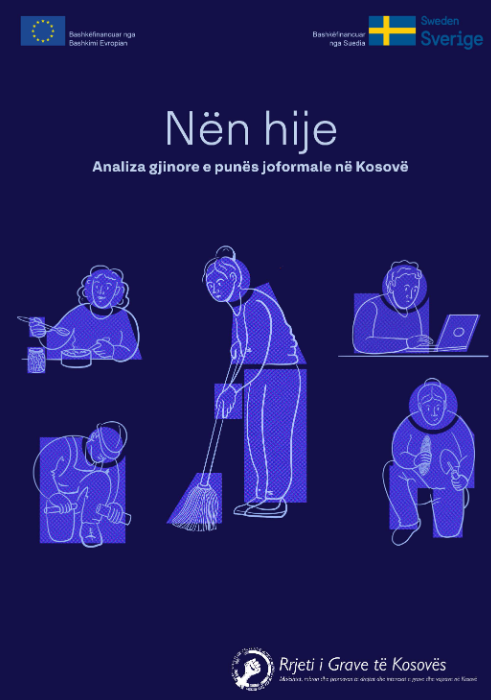The Kosovo Women’s Network (KWN) has conducted an in-depth study examining the prevalence, nature, and impact of the informal economy on men and women in Kosovo. This research aims to assist the Government of Kosovo and the European Union in developing gender-responsive strategies that address informality without causing harm.
The informal economy poses significant challenges for Kosovo’s development. Informal workers, often without contracts or basic rights, face insecurity and low incomes. This situation is especially difficult for women, who have less access to information and support to claim their rights. Unpaid care work, involvement in family businesses, and agricultural work by women often remain hidden, “in the shadows.”
This research included a gender analysis of laws and policies, a representative survey conducted across Kosovo with 1,623 households, and interviews with various stakeholders, including informal workers. The study was co-financed by the European Union and the Swedish International Development Cooperation Agency, with additional support from the United Nations Food and Agriculture Organization for the survey.
Key Findings: The study revealed gaps in current legislation regarding the gender-responsive approach to informality, largely due to insufficient gender analysis informing policy approaches. Indicators, baselines, and objectives in public policies lack gender-disaggregated data, undermining efforts to monitor and evaluate interventions against informal work. Current laws do not provide clear guidelines or sanctions for addressing labour violations in line with EU legislation. Relevant laws have also not yet been harmonised with the EU Directive on work-life balance. The economic contributions of unpaid care and domestic work in households are not clearly defined in legal provisions.
Officially, fewer than two out of ten women are employed, compared to five out of ten men. Unpaid work in families and caregiving remains a key factor affecting the extremely low participation of women in the workforce. Existing data do not shed light on informality, and previous estimates are outdated, lack gender analysis, or use a limited conceptualisation of informality that does not consider gender differences. KWN tested alternative methods for measuring informality, using context-specific questions about employment status, contracts, pensions, tax contributions, and involvement in various informal activities.
Source: https://womensnetwork.org/sq/publications/nen-hije-analiza-gjinore-e-punes-joformale-ne-kosove/

